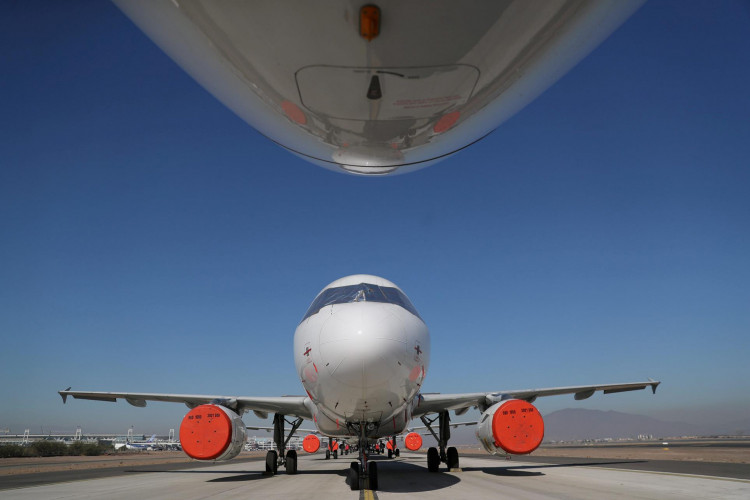LATAM Airlines is the latest casualty in the ongoing global health crisis that's dealing a heavy blow on the world's airline companies. LATAM, the largest airline company in South America, sought US bankruptcy protection on Tuesday as the carrier struggles with a steep downturn in air operations due to the pandemic.
The Chapter 11 bankruptcy filing accentuates the magnitude of the financial difficulties the travel industry is facing as a result of worldwide lockdowns, quarantines and other steps taken by governments around the globe to prevent the spread of the COVID-19 virus.
Considering the negative effects that the pandemic-triggered destruction has caused on airline companies, "Latam has been forced to make a series of extremely difficult decisions in the last few months," chief executive officer Roberto Alvo disclosed in a video statement, as reported by Agence France-Presse.
The Chilean-Brazilian carrier announced in April that it was reducing its operations by a whopping 95 percent in reaction to the current pandemic. Latam also disclosed it was slashing hundreds of jobs earlier this month. The airline pointed out that there would be no immediate aftershock on commercial or cargo flights.
Unlike Avianca, which was beset by management distortion and huge losses, Chile's LATAM reported sales for the last four straight years that total over $700 million. The carrier had also authorized a dividend payment this year, compared to other companies that were forced to stop payouts instead.
The bankruptcy procedure will allow LATAM to continue to operate as the group seeks to reorganize debt and set everything in place. The airline has been granted financial relief by major stakeholders, including the Cueto family of Chile and Qatar Airways, of around $900 million in debtor-in-possession financing. The airline had around $1.3 billion in ready cash during the time of filing.
The airline entered the pandemic period as a profitable group, "yet exceptional circumstances have led to a collapse in global demand," said Alvo in a statement. The CEO stressed that not only has the pandemic brought global aviation to a virtual standstill, but "it has also changed the industry for the foreseeable future."
Global air travel has fallen to a fraction of levels it was just months earlier as the COVID-19 crisis spread from China to other countries around the world, creating increasing worries in the aviation market. The International Air Transport Association predicted in April that airlines' sales from hauling passengers would plunge $314 billion for the year, which means they could generate less than 50 percent of what they did last year.






